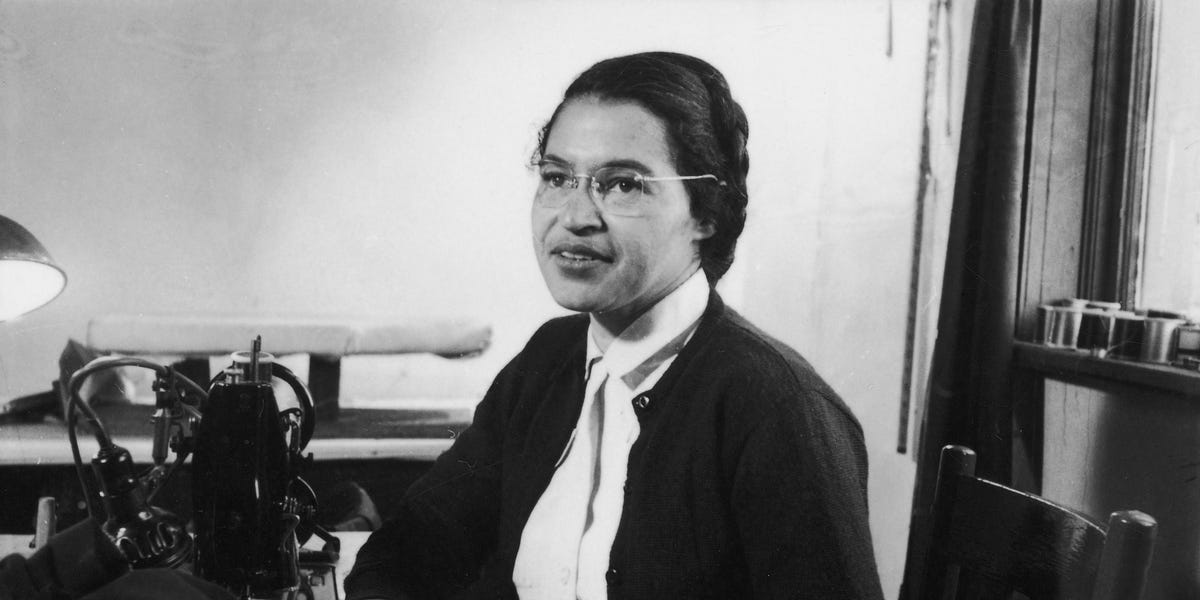Rosa Parks’ name is synonymous with courage and the fight for civil rights. Her quiet act of defiance on a Montgomery bus in 1955 ignited a movement that would change America forever. But her story goes far beyond that one pivotal moment. Rosa Parks was a lifelong activist, deeply committed to equality and justice long before she became a national icon. To truly understand her impact, we need to explore the full timeline of Rosa Parks, from her early life in Alabama to her later years as a respected leader and advocate.
This timeline will take you through key moments in Rosa Parks’ life, highlighting her unwavering dedication to social change. We’ll delve into her childhood experiences with segregation, her involvement with the Naacp, and the events that led up to that fateful day on the bus. You’ll also discover how she continued to fight for equality after The Montgomery Bus Boycott, becoming a symbol of hope and inspiration for generations to come.
Let’s embark on this journey together and learn more about the extraordinary life of Rosa Parks.
Early Life and Activism
Rosa Parks was born in Tuskegee, Alabama, in 1913, a time when segregation deeply permeated every aspect of life for African Americans. She experienced firsthand the sting of racial discrimination from a young age. Her parents instilled in her a strong sense of justice and equality, encouraging her to stand up for what was right, even in the face of adversity. Rosa’s early experiences shaped her worldview and fueled her determination to fight for a better future.
As a teenager, she became involved in local activism, attending meetings and participating in events organized by the Naacp. She also developed a passion for education, understanding its power to uplift individuals and communities. After graduating from high school, Rosa moved to Montgomery, Alabama, where she continued her work with the Naacp, advocating for voting rights and fair treatment under the law. Her commitment to social justice grew stronger with each passing year, laying the groundwork for her future role as a pivotal figure in The Civil Rights Movement.
The Montgomery Bus Boycott
On December 1, 1955, Rosa Parks boarded a city bus in Montgomery, Alabama. This seemingly ordinary act would forever change the course of history. At that time, segregation laws mandated that African Americans sit in the back of buses and give up their seats to White Passengers. When Rosa refused to comply with this discriminatory rule, she was arrested, sparking outrage throughout the Black community.
Her arrest ignited a powerful movement known as The Montgomery Bus Boycott. For over a year, Black residents of Montgomery refused to ride the city buses, Choosing Instead To Walk, carpool, or use alternative transportation methods. This nonviolent protest, led by Dr. Martin Luther King Jr., put immense pressure on the city government and ultimately forced them to desegregate the bus system in 1956. The success of the boycott demonstrated the power of collective action and solidified Rosa Parks’ place as a symbol of resistance Against Racial Injustice.
Continued Advocacy and Legacy
After The Montgomery Bus Boycott, Rosa Parks moved to Detroit, Michigan, where she continued her activism for Civil Rights. She worked as a secretary for Congressman John Conyers Jr., advocating for voting rights and other Legislative Reforms. She also participated in numerous marches and demonstrations, lending her voice and experience to the ongoing struggle for equality.
Rosa Parks’ tireless work earned her widespread recognition and numerous honors throughout her life. She received The Presidential Medal Of Freedom in 1996 and The Congressional Gold Medal in 1999. These prestigious awards acknowledged her profound impact on American society and her enduring legacy as a champion of Social Justice. She remained a symbol of hope and inspiration, reminding us that even one person can make a difference when they stand up for what is right. Rosa Parks passed away in 2005 at the age of 92, leaving behind a powerful timeline of courage, activism, and unwavering commitment to equality.
 Leonard Bernstein Love: A Complex Marriage with Felicia Montealegre
Leonard Bernstein Love: A Complex Marriage with Felicia MontealegreHonors and Recognition
Rosa Parks’ unwavering dedication to the fight for civil rights earned her immense respect and recognition throughout her life. Her contributions to the movement were acknowledged through numerous awards and honors bestowed upon her by government officials, organizations, and individuals who admired her courage and commitment.
One of the most prestigious recognitions she received was The Presidential Medal Of Freedom, awarded to her in 1996 by President Bill Clinton. This honor is given to individuals who have made exceptional contributions to the security or national interests of The United States, World Peace, cultural or other significant public or Private Endeavors. The Congressional Gold Medal, the highest civilian award bestowed by The United States Congress, was presented to Rosa Parks in 1999, further solidifying her place as a national hero and symbol of The Civil Rights Movement.
These honors served not only as a testament to her personal achievements but also as a powerful reminder of the transformative impact she had on American society.
Rosa Parks: A Symbol of Resistance
Rosa Parks’ legacy extends far beyond the events of December 1, 1955. Her quiet act of defiance on that Montgomery bus resonated throughout the nation and inspired countless individuals to challenge injustice wherever they encountered it. She became a symbol of resistance, a beacon of hope for those who yearned for a more equitable society.
Rosa Parks’ courage served as a catalyst for change, sparking a movement that ultimately led to the dismantling of segregation laws and the advancement of civil rights for all Americans. Her story continues to inspire generations to stand up for what is right, even in the face of adversity. She reminds us that every individual has the power to make a difference and that collective action can Bring About Profound Social Transformation. Her enduring legacy as a symbol of resistance serves as a powerful testament to the human spirit’s capacity for courage, compassion, and unwavering pursuit of justice.










